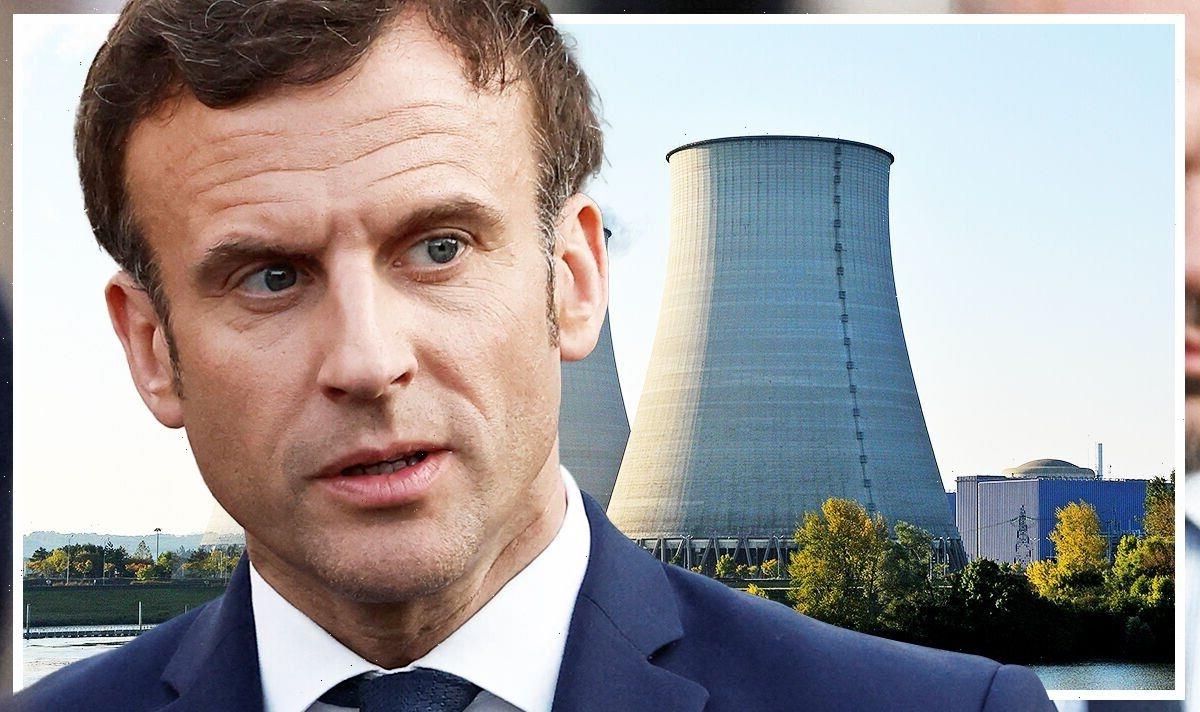UK taxpayer will contribute towards nuclear power strategy
We use your sign-up to provide content in ways you’ve consented to and to improve our understanding of you. This may include adverts from us and 3rd parties based on our understanding. You can unsubscribe at any time. More info
The recently re-elected French president announced his new green plan — which involves the construction of at least six new nuclear reactors — back in the February of this year. Mr Macron is also looking to extend the operational lifetimes of France’s 32 oldest existing reactors by 10 years to half a century — thereby avoiding having to shut them down this decade. The majority of the country’s nuclear plants were built in the late seventies and early eighties, in the wake of the Seventies oil crisis.
Electricité de France (EDF) has reported that, with 27 reactors presently out of commission, the state-owned utility firm is presently being forced to purchase electricity from the European grid to meet demand — which, thanks to the present gas crisis, is at a premium.
Five of the nuclear reactors had to be taken offline after corrosion-caused cracking was detected in internal pipework last year.
EDF has said that tests are presently underway in these devices to assess the severity of the corrosion
A spokesperson for EDF told Sky News that the corrosion identified in five of the offline reactors “does not call into question the high level of safety of our facilities.”
“We propose to implement the principle of safety primacy on the technical subject of stress corrosion, which we are currently encountering.”


The power firm is also looking to check six other reactors for similar damage, three of which will need to be shut down specifically for the undertaking.
The other 22 plants that have already been taken offline are either down for their five-week-long routine annual maintenance, their 10 or 40-year safety reviews, which are more time consuming, or as a result of problems stemming from the Covid pandemic.
Around 70 percent of France’s domestic electricity generation usually comes via nuclear power — a figure which, as of yesterday afternoon, had fallen to around 58 percent, national grid operator Réseau de Transport d’Électricité (RTE) reported.
The present situation — which is expected to see reduced electricity production well into next year — has forced EDF to lower its projected 2023 output by around 40 terawatt-hours.
Coupled with recently introduced regulatory measures from the French government to limit energy price increases, the present situation has led to the credit rating agency S&P forecasting a fall in EDF’s earnings by €5–7 billion (£4.2–5.9 billion).
The current shutdowns are, however, hardly without precedent. In fact, World Nuclear Industry Status Report editor Mycle Schneider told DW.com last year that “France’s nuclear reactors, on average, had to be switched off during one-third of the time in 2020.”


Global energy policy expert Anne-Sophie Corbeau of Columbia University in New York City said that EDF’s present predicament is “a worry”.
She added: “This energy has to be replaced by something else, which in many cases will be fossil fuels.
“Given the prices of electricity right now, this is very costly.
“For example, in December, we paid €1.4billion (£1.18billion) for our electricity imports, while usually, we pay in the tens of millions.”
Pressed on whether EDF was buying more gas-derived electricity to compensate for current nuclear shortfalls, a spokesperson said that it was “impossible to qualify the source of energy production.”
DON’T MISS:
NASA’s Mars helicopter spots ‘otherworldly’ wreckage on Red Planet [REPORT]
Poland outsmarts Putin as Kremlin CUTS gas supplies into EU [ANALYSIS]
Germany in chaos: Scholz ‘preparing’ for sudden gas cut [INSIGHT]

France’s tribulations have raised red flags about the reliability of nuclear facilities — with the UK having also placed atomic energy at the heart of its new energy security strategy.
Early this month, the Government announced ambitious plans to construct eight new reactors which together will generate some 24 GWe — around a quarter of the UK’s projected energy demand — by the year 2050.
A spokesperson for the Department of Energy & Climate Change told Sky News that nuclear power is “a necessity, not a luxury”.
In fact, the report outlining the new energy security strategy called nuclear power is “the only form of reliable, low carbon electricity generation which has been proven at scale”.
It added: “We can only secure a big enough baseload of reliable power for our island by drawing on nuclear.”
Climate change think tank E3G’s chairman and noted nuclear critic Tom Burke said that “the idea that nuclear reactors are always on is wrong.
“We just don’t need [new nuclear facilities]. They’re very expensive.”
Source: Read Full Article
